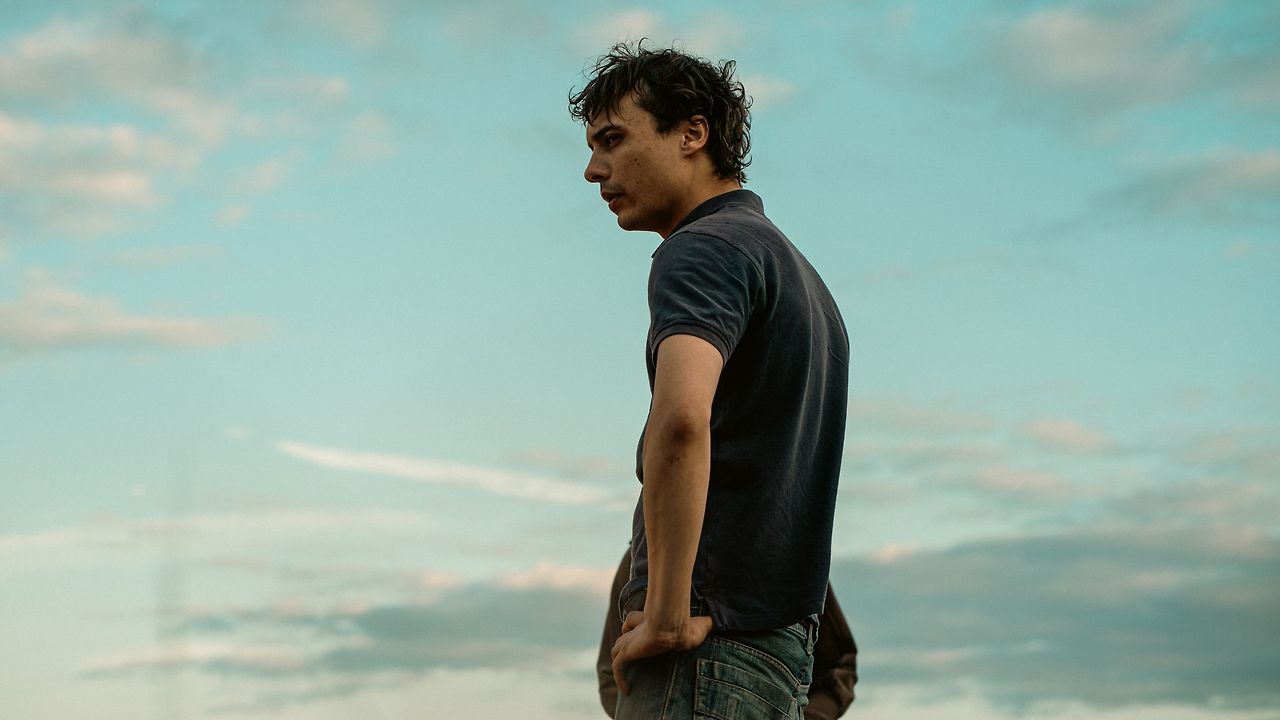Can you tell me about shooting at night? Carax does that so beautifully and, similarly to Urchin, there are a lot of scenes you could just never do in the daytime, and it has a lot of different challenges.
Interestingly, when we discover Mike in his environment, an urban environment, most of it is daytime. We enter into his world in this relatively neutral stance that we discover him from quite far away. And then we slowly, slowly, creep into his world, rather than intrude.
The latter part of the film, for me, is this downward spiral and the animal taking us back to the place he knows the most, and so the streets, the nighttime and the darkness being almost like a hug. It’s a way of bringing him back to something that is most comfortable, but still just as dangerous. It became important. But it’s hard to shoot at night. It’s riskier. You have more encounters with certain characters and people that have been drinking and stuff.
Shooting in a city as well.
Yeah, in East London, and in the summer… people are feeling something, they are on something. It’s a different energy. Something changes in the energy of the crew as well, there’s a desperation. I don’t know what it is, it’s like people are aware of the time all of a sudden because the darkness is upon them and it’s like, “We have to get through this now, otherwise we’re not going to make it home.” There is a certain palpable time pressure at night.
You weirdly have less time because you physically can’t stay awake, right?
Yeah, and the light rises so early in the summer—it rises at 4:30am or 5am, it sets at 10:30pm, so you’ve only got five or six hours of [nighttime].
There was one review of The Lovers on the Bridge which made me think of Urchin. Martin writes, “If all you’re ever able to feel about yourself is hatred, then know that you can learn to love yourself through the eyes of another person.”
That is so…. I am going to steal that. That is so nice.
Right?
When I talk about it in the future, I’ll say, “Ella Kemp told me about this review on .”
You can take it.
It also speaks to the possibility in Urchin of each new encounter that he has, it’s a potential for change and for him to see himself in a new way. Franco at the hotel, Andrea in that section of film, even Nathan. Encountering him at the end of the film in that kind of falling moment is a confrontation with how far he’s gone, and how low he could have gone for someone that used to be so extreme. But yeah, that’s a really nice description. I love that.
















